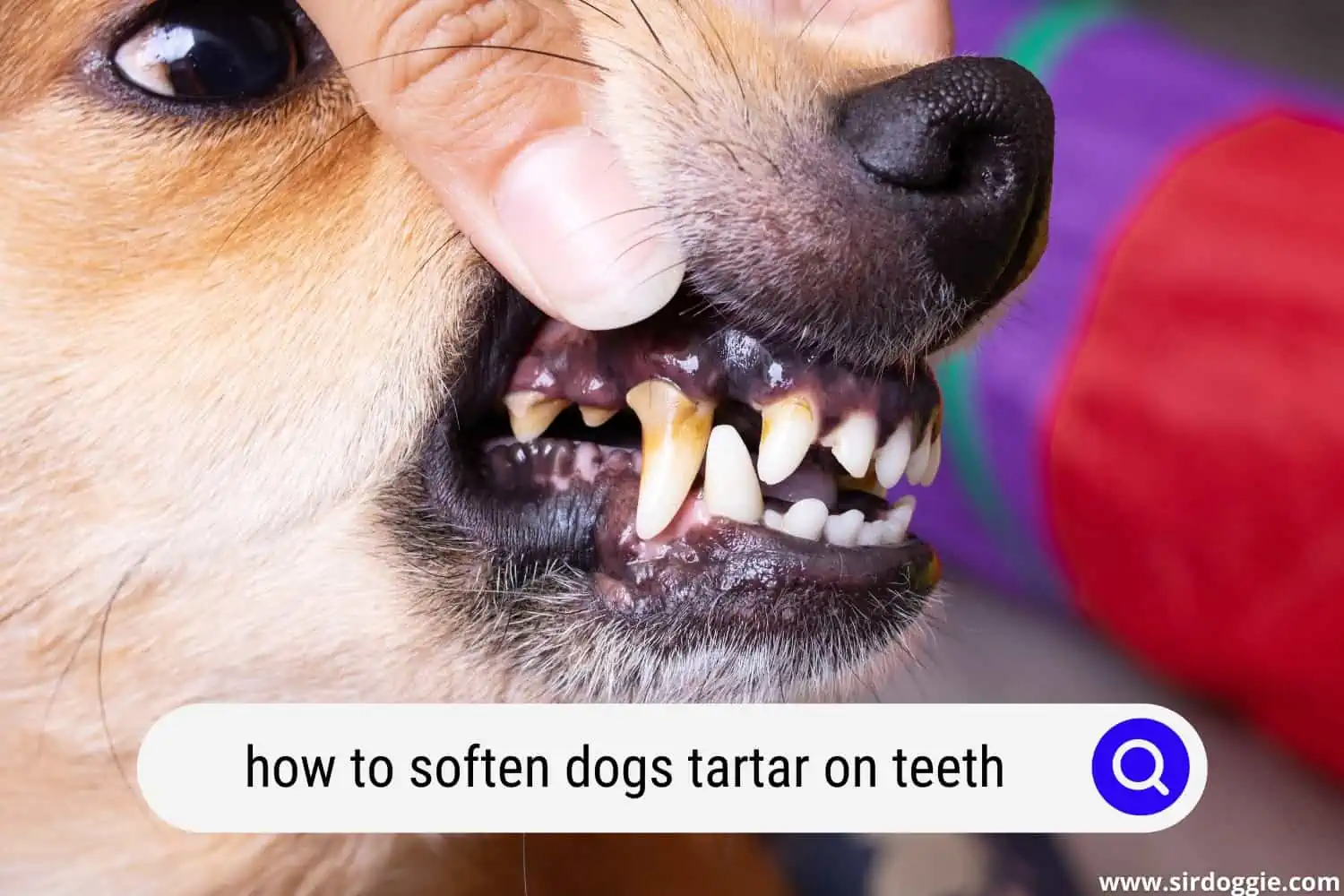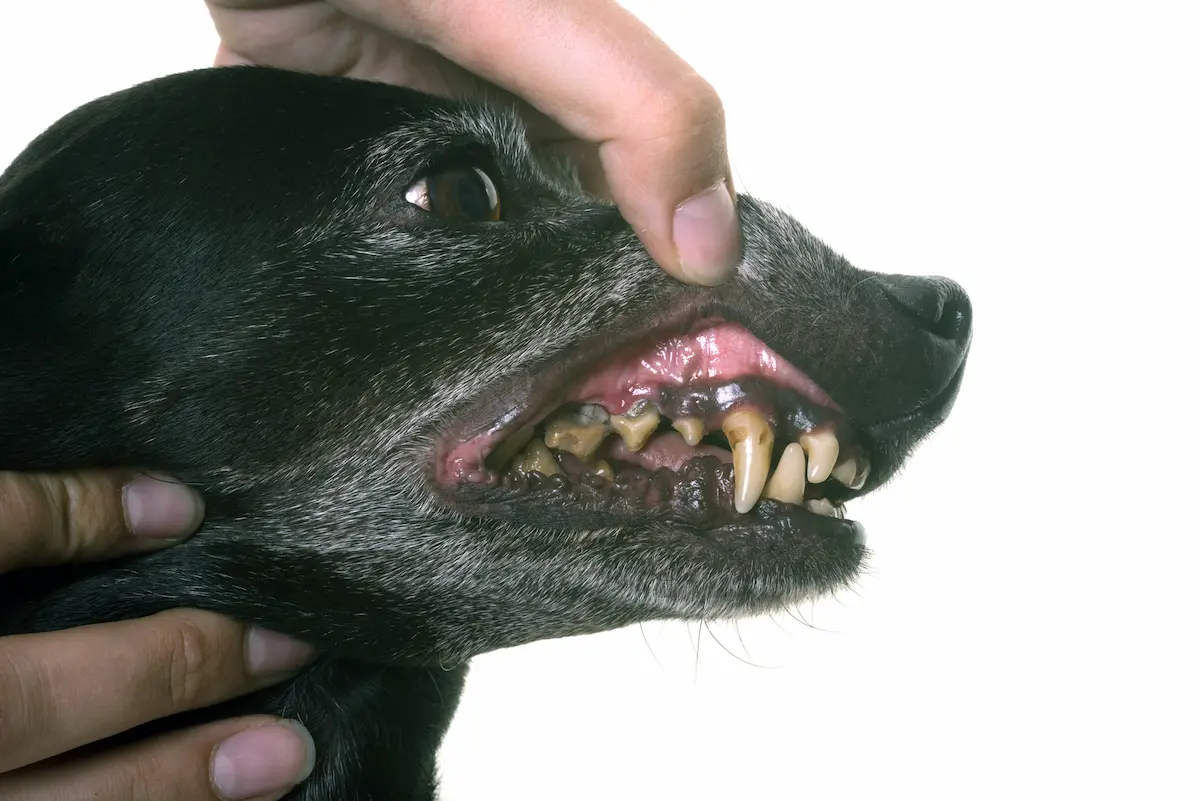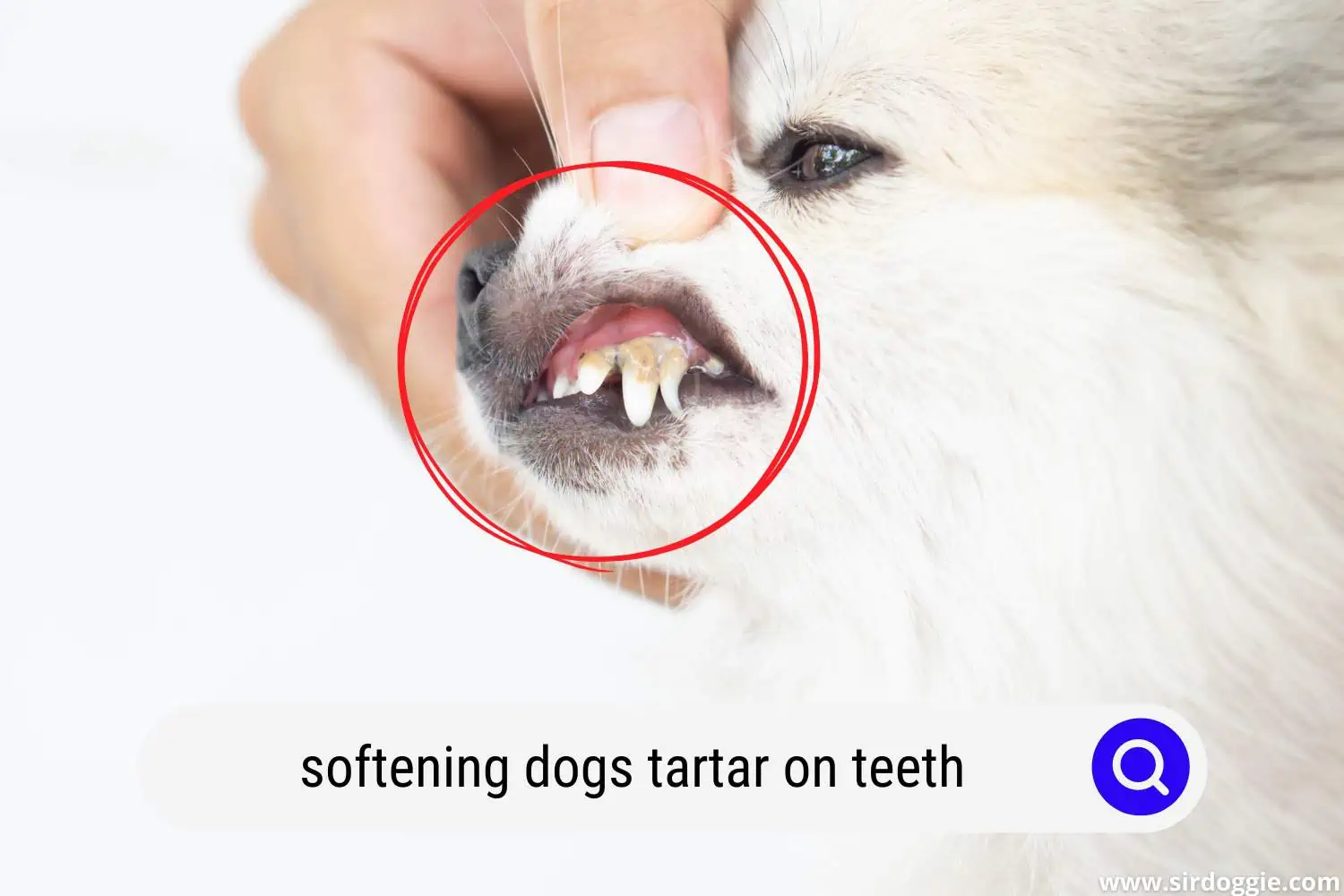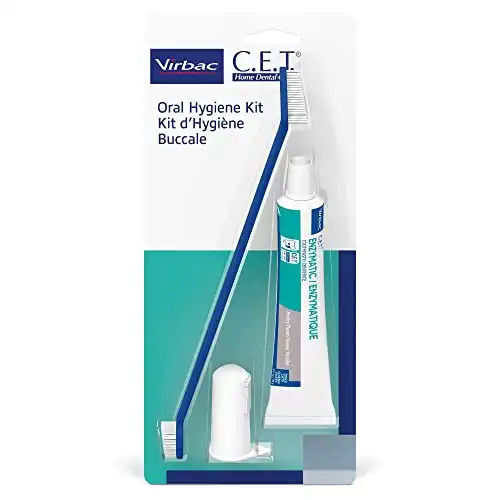How to Soften Dogs Tartar on Teeth [HELPFUL GUIDE]
Every time your dog eats, sticky plaque forms on the teeth. As the plaque starts to combine with the salts and calcium deposits in your dog’s saliva, it begins to harden into tartar. Once the tartar hardens, it is called dental calculus. The hardened calculus irritates the gums and makes them bleed.

Tartar is the dark buildup on a dog’s teeth that wreak havoc on your dental health. It can coat the exterior of a dog’s teeth and invade below the gumline. Plaque can harden into tartar within approx 36 hours. Here’s why tartar is bad for your dogs:
- Tartar is porous, so dog food can easily stain tartar. This can discolor your dog’s teeth.
- Tartar can cause bad breath from bacteria buildup. By removing tartar from your dog’s teeth, you can get closer to your furry friend without having to hold your breath!
- Tartar can lead to cavities and tooth decay.
- Tartar progresses to cause periodontal disease where the gums start pulling away from the teeth. This causes pain, inflammation, and infection.
- If left untreated, bacteria from tartar can enter the dog’s bloodstream. It can cause serious infections to vital organs such as the heart and kidneys.
That’s why knowing how to soften plaque from your dog’s teeth is essential to your furry friend’s health and well-being.
Some of the links in this post are affiliate, and we may earn a commission.
Related Reading: Is It Ok to Dog’s Teeth With Toothpaste?
Tips for softening dog’s tartar
When dealing with a dog’s tartar, you must consider a dog’s dental care with the utmost importance. This is needed in the first place to restrict tartar to develop. If it has already developed, then its further development should be restricted.
Here are some tips for softening a dog’s tartar:
High-power rotating brushes
Specialized brushes for tartar softening are available that should be used effectively. The manual conventional brushes wouldn’t be that effective when softening your dog’s tartar. The battery-operated high-power rotating brushes are ideally designed to remove plaque and soften tartar. They work individually over every tooth.
Specialized toothpaste
You can use the dog’s enzymatic toothpaste while brushing the teeth of your dog. They not only help in softening tartar but also deal with its bad breath.
Pet Parent Tip: Do not use human toothpaste for brushing your dog’s teeth. It contains ingredients that can cause an upset stomach when swallowed.
Dog dental chews and chew toys
Dogs who love to chew have far less tartar buildup. Some dog dental chews are designed to help remove tartar on the dog’s teeth. Chew toys come in the form of different shapes and objects. These chews act by scraping harmful substances off teeth as a dog chews on them.
Dog dental wipes
Many dental wipes contain a substance called sodium hexametaphosphate (SHMP). SHMP aids in breaking down calcium that forms tartar. It then mixes with the dog’s saliva to help wash away some of the biofilms.
Modify your dog’s diet
The food your dog eats plays a decisive role in this. Modify your dog’s diet to include more raw meat, raw bones, and dry kibble. Dry dog food helps in scraping plaque and tartar off the teeth.
Coconut oil
You can also use coconut oil for brushing your dog’s teeth. It has anti-bacterial properties cleans the teeth naturally and softens dog tartar.
Dental sprays
Many over-the-counter oral dog dental sprays can soften and loosen up tartar and reduce inflammation.
Plaque control directly relates to tartar prevention. To achieve the tartar softening targets for dogs, your dog’s teeth should be brushed daily. it’s best to have your dog see your vet for a thorough oral exam and recommendations.
How easy is it to remove or soften the dog’s tartar?
If you do not practice good dental hygiene, plaque on your dog’s teeth can turn into tartar. Once plaque hardens into tartar, it’s very tough to remove it.

Tartar softening or removal sometimes requires a visit to the vet for a professional cleaning. The scraping procedure can be very upsetting and potentially painful for the dog.
Certain dog breeds are genetically predisposed to tartar development. But that doesn’t mean dog tartar can’t be prevented or successfully treated. For short-nosed breeds or toy breeds, dental cleanings are often unavoidable. This is due to the way their mouths are structured. Also, older dogs with inflamed gums are more prone to tartar buildup or infections.
Removing plaque from your dog’s teeth is simply the best protection against tartar and periodontal disease!
Is it worth visiting a vet to soften the dog’s tartar?
Visiting a vet for softening of dog tartar depends on the severity of tartar accumulation on the dog’s teeth. If the accumulated layer of tartar is thick and very hard, it’s worth visiting a vet to soften the dog’s tartar.
Vets offer professional cleaning and scaling for your dog’s teeth. The vet will get the dental X-rays done first to decide on treatment.
Regular dental check-ups and teeth cleaning are essential to maintain good oral hygiene in your dog. Keep in mind that frequent visits to the vet for dog tartar removal treatments mean expensive medical bills. Costs will depend on the severity of tartar buildup.

Wrapping up
Tartar, caused by a lack of poor dental care, can have extremely negative effects on your dog’s gums and teeth. It leads to decay in their jawbone, teeth roots, and other parts of your dog’s mouth.
Want more years with your precious dog? Maintain good oral hygiene and start removing that tartar! Caring for your dog’s teeth can add 2-5 years to their life. Dental care makes those golden years much more happy and healthy!
With a little daily attention to oral care from an early age, your dog can have healthy teeth for a lifetime. Brushing their teeth regularly is the foundation of great oral care. The earlier you instill a good oral care routine, the better it would be for your dog.
Hope you enjoyed reading this article! Did you find this article helpful? Feel free to share your thoughts and questions. We would be happy to hear from you!

Family Dog Expert Author
Hi there! I’m Stuart, a devoted dog lover and family dog expert with over a decade of experience working with our furry companions. My passion for dogs drives me to share my knowledge and expertise, helping families build strong, loving bonds with their four-legged friends. When I’m not writing for SirDoggie, you’ll find me hiking, playing with my beautiful dog, or studying music.
